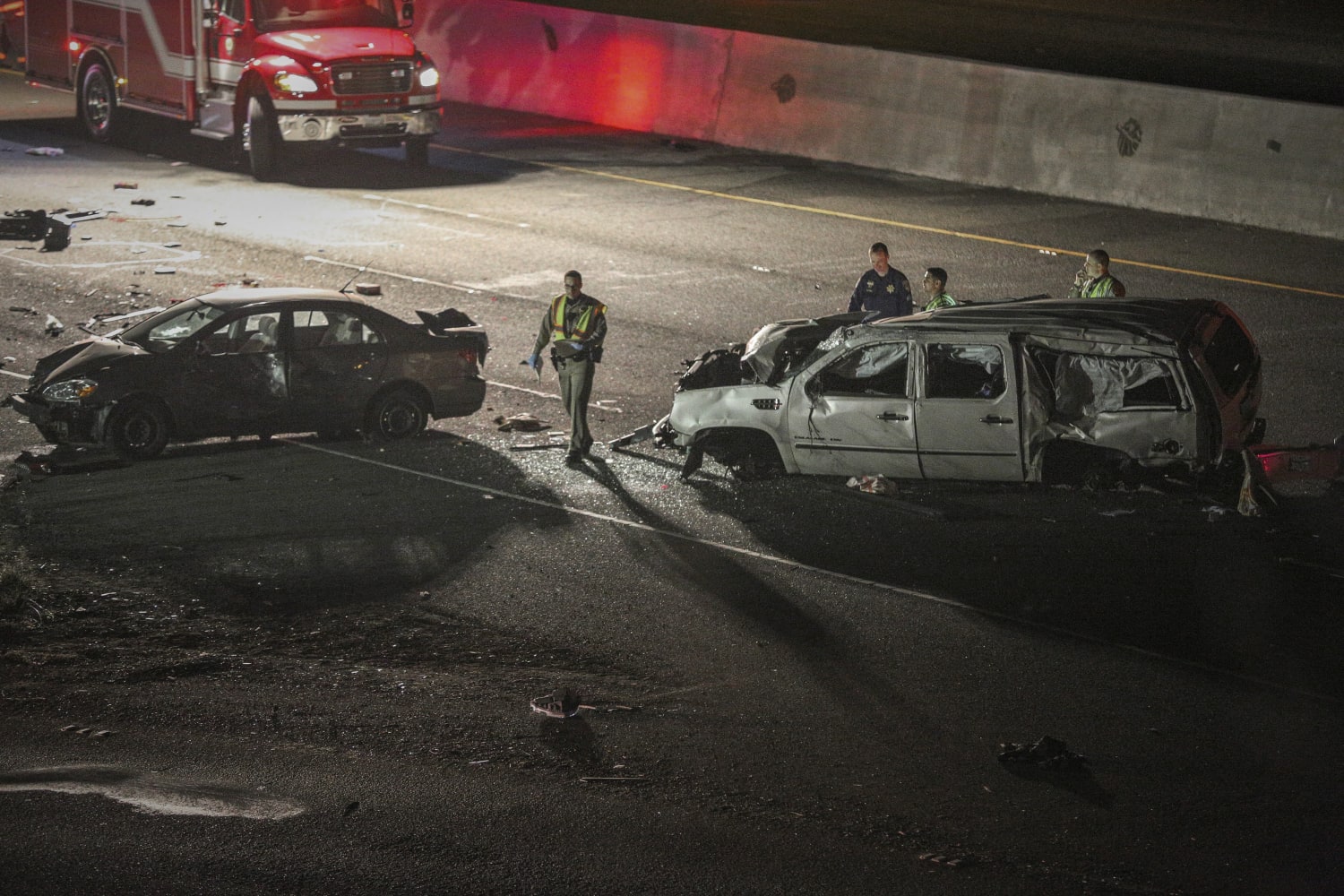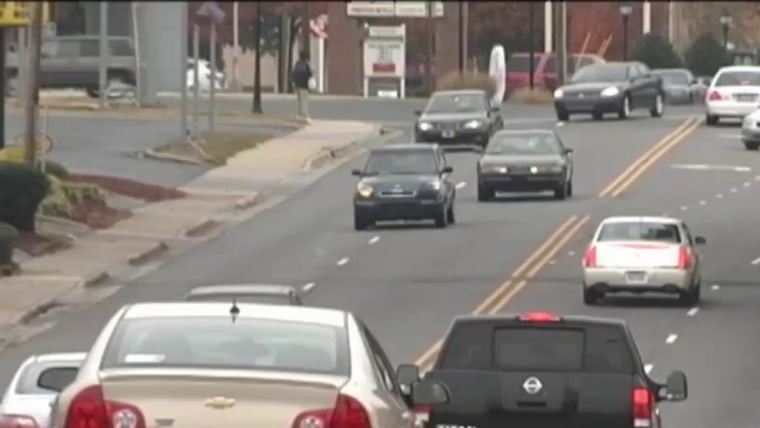Americans don’t always fear the things we should.
This summer, my dad visited us every week in the Pacific Northwest to play with the grandkids, and every week I could predict what his complaints would be: The record-breaking heat in the area was aggravating him, as was the chronic pain in his back — a deep ache still lingering from a major car accident two years ago. The common cause in these events was not lost on me.
When it comes to car accidents, we’ve mostly shrugged our shoulders and accepted the carnage as an unavoidable fact of life.
The threat car emissions pose to the environment gets some attention. But what we Americans are still in total collective denial about is how lethal our car dependency already is. Every year, nearly 40,000 people die in crashes, and at least another 3.3 million are seriously injured. Cars put us in clear, imminent danger every day, especially the most vulnerable and marginalized: Motor vehicle traffic is a leading cause of death for children, well ahead of firearms or drownings. Among adults, Black and brown people are more likely to die or be injured by cars than white people are.
This year so far, 21,450 people have died in motor vehicle accidents, up 17 percent from 2019, according to preliminary estimates by the National Safety Council released last month. More than 2.4 million have been injured seriously enough to require medical attention. Usually when millions of Americans are being killed or injured at these rates, it triggers public outcry, even widespread movements. But when it comes to car accidents, we’ve mostly shrugged our shoulders and accepted the carnage as an unavoidable fact of life.
Self-driving and electric vehicles are often hailed as solutions to the safety issues posed by cars, but before we try to fix a problem, we first have to name the problem. In this case, we have to stop normalizing the trauma caused by cars.
“We are a very car-dependent society, and it makes us nonchalant” about crashes, says J. Gayle Beck, a licensed clinical psychologist who focuses on the emotional aftermath of trauma and has studied post-traumatic stress disorder among survivors of motor vehicle accidents.
According to a 1995 study that’s still cited by mental health professionals and auto injury lawyers alike, 39.2 percent of survivors of car accidents develop post-traumatic stress disorder— and it’s not just those whose cars are crashed into. When it comes to who experiences symptoms of trauma, Beck notes, we usually think about the person being hit, not the person doing the hitting, or the first responders and helpers at the scene. The impact is bigger yet if you think of the victims’ families, friends, colleagues and neighbors.
One reason might be a culture of toxic individualism that reduces almost any systemic problem, from sexual harassment to health care, to so-called isolated incidents. In the context of cars, we tend not to blame public infrastructure, but individual drivers, says Steve Davis, an assistant vice president of transportation strategy at Smart Growth America, an advocacy group for safe communities.
But drivers can only control so much, the least of which are environments built decades ago and maintained by the status quo. “The design of roadways is for cars and speed,” Davis notes. “That’s the philosophy of street design.”
Putting the onus on U.S. drivers —three-quarters of whom anyway consider themselves to be safer than average— to lower fatalities and accidents by simply driving better seems like an effort in futility. “It’s usually not reckless driving that causes accidents,” Davis says, “but everyday driving that we all do.”
It’s true that, with the exception of the past few years, cars generally have become safer for drivers and passengers since the 1970s. But our rate of violence is still exceptionally high compared to other developed countries: In Canada, 5.34 people per 100,000 die each year in road traffic; in Japan, it’s 3.6. In the United States, we’re at 12.6. Americans drive more than our global counterparts, but also more of us drive trucks and SUVs, which are two to three times more likely than smaller personal vehicles to kill people walking.
I’m sure I speak for many walkers when I say that the crosswalk hustle is my least favorite indignity of being a human in a car-dependent world. But that’s a mere annoyance considering that the last few years have been the most deadly in three decades for pedestrians, in part because vehicles keep getting bigger and bigger.
In fact, part of the reason more Black Americans die in traffic deaths than any other race is because they are more likely to have to walk to get places, which is riskier than driving, and live in neighborhoods that are more likely to lack safety features like crosswalks even as high-speed freeways with dangerous crossing conditions often tear through them. Children, meanwhile, are inherently more vulnerable because of their smaller size. Being less visible on roadways or sidewalks increases their risks of being hit — even in their own driveways.
Most Americans alive today have known a family member or friend who’s at least been involved in a fender bender, a cheeky way of saying minor collision. The same month my dad was flipped over in his SUV and cut out of his seatbelt by first responders, a coworker was commuting home when a driver T-boned her bus in the middle of a major intersection. She sustained back and shoulder injuries, not unlike my dad; nearly two years later, like my dad, she still has flare-ups that limit her mobility. Even between the first and second drafts of this story, a car going 60 miles per hour collided into a close friend of mine while he was driving at night. He said he didn’t blame the driver because the road felt inherently dangerous. Why would that be the driver’s fault? he asked.
Envisioning an alternative to this mess might be impossible for many of us, but we have to. However complicated the issue is, the logic is simple: We need to open our eyes and see that we’re at the end of the road.
Source: | This article originally belongs to Nbcnews.com











